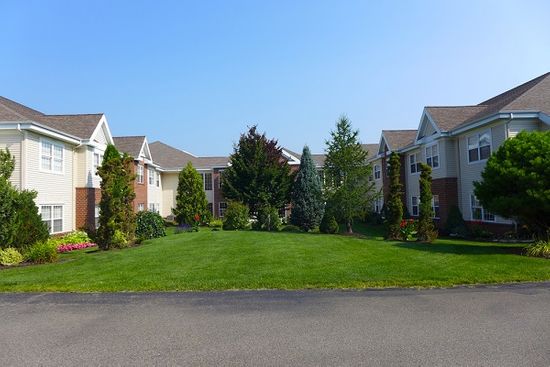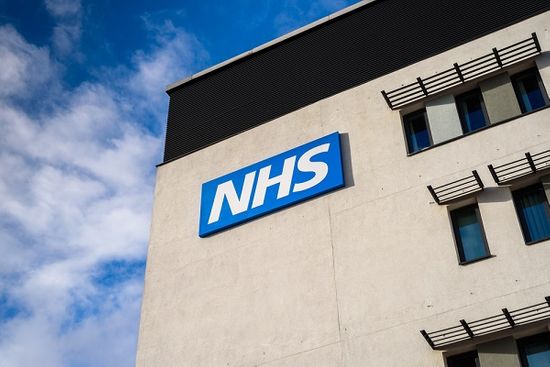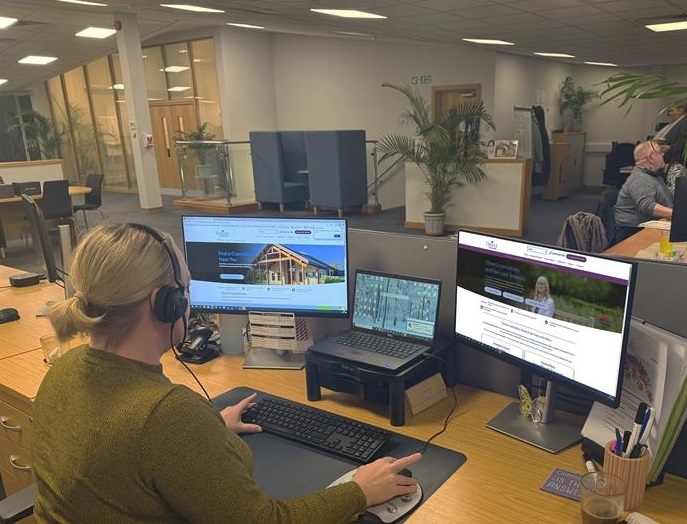The paperwork is a legal obligation and completing it sooner rather than later will ensure that your funeral arrangements run smoothly, and your loved one can be laid to rest.
In our article, we'll guide you through the process to try to make things as easy as possible during the most difficult of times, detailing which forms you need to complete and how our team of compassionate experts can help.
It's easy to get a little overwhelmed at the sight of all the funeral paperwork that needs to be completed, and all the jargon that you might encounter.
So, we’ve compiled some simple tables, for both cremation and burial, presenting the important documents you might receive and/or need to complete, and their purposes, to make things easier.
At Distinct Cremations, our customer service specialists will be on hand to provide you with guidance around the paperwork at your time of need, and explain what everything means and everything that matters.
We've made it our duty to make things as simple and as smooth as possible during the most difficult time. When the time comes, call us any time on 01543 211997 and you can rest assured that you will be in the most caring and attentive hands.
| Paperwork | Purpose | More information |
|---|---|---|
| Medical Certificate of Cause of Death | This is the certificate which provides clarity on the cause of death, enabling the deceased’s family to register the death. | If the cause of death is clear this certificate will be issued. If the cause of death is unclear, the death will be referred to the coroner. Following a post-mortem, the coroner will fill out and send the necessary forms to the register office and release the body for a funeral. |
| Death certificate | A death certificate is a document that you obtain after registering a death in the UK. It states the date, place of death, and name of the deceased. | When the death certificate is issued, a Green Form is issued, which is what is required to arrange a funeral. Read more about how to register a death. |
| Certificate for Burial or Cremation / Green form | Authorises the burial or cremation. Without this form your funeral director will not be able to carry out the funeral. | This form is usually sent from the registrar to the funeral director to carry out the arrangements. Some registrars will only issue to the applicant, in which case you must give this to the funeral director. |
| Cremation 1 form | Application for the cremation of a deceased person. | If you or the deceased have chosen a cremation funeral, this form will need to be completed by the nearest relative or executor of the will. |
| Cremation 6 form | This form is for coroners to complete, to release a body for cremation. | If the death is being investigated by the coroner, the coroner’s permission will be required before the cremation can take place and this will be provided through this form. |
| Burial form | To purchase a grave or reopen an existing plot. | This form will be completed by a funeral director or the family can request one from their local council if they decide to arrange a funeral without a funeral director. |
| Order for Burial / Form 101 | Similar to a Cremation 6 form, this form is for coroners to complete to release a body for a burial. | In the event that a coroner conducts an investigation into the death, prior approval from the coroner will be necessary before proceeding with the burial. This approval will be granted via the completion of this form. |
If you have any concerns about the cause of death, you will have the opportunity to discuss this with the Medical Examiner after the Attending Practitioner (the doctor who declared the cause of death) has submitted this to the Medical Examiner.
After a death, knowing what to do when someone dies, the steps you'll need to take, and the order in which to take them, can feel daunting.
So can knowing what funeral documents you need to complete and when to complete them.
To help break the process down of what to do, below is a step-by-step process and a few further resources that may help.
A medical professional will need to confirm and verify the death as soon as possible, and they will be able to answer any questions you may have.
This will then either result in the deceased entering the care of a coroner if the death is unexpected or will allow a funeral director to bring the deceased into their care.
The Attending Practitioner (either the GP who has seen the deceased in their lifetime or the doctor caring for the deceased if they were in hospital) will determine the cause of death and issue the Medical Certificate of Cause of Death (MCCD) to the Medical Examiner.
In the case of an unexpected death or if the death is suspicious, the deceased may need to enter the care of a coroner who’ll investigate the cause of death. Funeral arrangements can still be arranged, but the funeral will likely be delayed.
The Medical Examiner will review the MCCD and issue authority for you to register with the registrar. The Medical Examiner will discuss the cause of death with you prior to doing so.
If the death has been referred to a coroner, the coroner will determine the cause of death and inform the registrar once investigations are complete or an interim death certificate has been issued.
The registrar will now contact you and advise that you can now register the death. An appointment will be needed and you'll be required to take certain documents such as your loved one's passport and birth certificate with you.
If the death was expected, the registry office will issue a Death certificate and Green form to allow the funeral to go ahead.
You will need to complete a Cremation 1 form and a Pre-liminary form. Once these are complete, alongside the Green Form or the Cremation 6 Form, the funeral can go ahead.
The funeral can now take place. Funerals usually take place 2-4 weeks following the death of the deceased.
Below are three articles that will help detail what to do when someone dies in a care home, hospital and at home.

As opposed to those who die in a hospital or care home, at home you won't have anyone to guide you through the process. That’s why it’s important to know what you’ll need to do before that happens.
What to do when someone dies at home
When someone dies in a care home, it’s slightly different to a home or a hospital, but the steps you’ll need to take are mostly the same. However, it's always important to ensure you are sufficiently prepared.
What to do when someone dies in a care home
When a loved one dies in a hospital, you’ll likely be made aware that death is imminent and be able to prepare for it although it doesn’t take away the impact of the loss. Here's what you need to do when someone dies in hospital.
What to do when someone dies in hospitalHere at Distinct Cremations, we have created a free checklist for you to download which lets you know what you need to do when someone dies.
Download our checklist below or speak to our expert team on 01543 211997 today
Download free checklistOccasionally, the doctor can’t give you the medical certificate of cause of death immediately as they’re unsure of the precise cause or circumstance of death.
In this case, the doctor will refer the deceased to a coroner to investigate the death which may involve a post-mortem or inquest. Usually, the coroner will issue an interim death certificate so you can go ahead with funeral arrangements.
A coroner is a government official responsible for investigating and determining the cause of death in cases that are sudden, suspicious, violent, or unexpected.
A coroner will hold an inquest into the death and when necessary conduct autopsies, review medical records, interview witnesses, and gather evidence to determine the cause of death. The cause of death could be due to natural causes, an accident, or undetermined factors.
Coroners play a crucial role in the legal and justice systems by providing information necessary for criminal investigations, insurance claims, and public health monitoring.
When a death occurs suddenly or unexpectedly, without a clear cause then they are often reported to the coroner. This includes deaths that happen at home, in public places, or in situations where the deceased was not in care.
Deaths that result from accidents, homicides, suicides, or any other form of violence are often reported to the coroner so a thorough investigation can be conducted.
Deaths that occur under unexplained or suspicious circumstances, even if they are not immediately perceived as violent, may also be reported to the coroner.
And finally, in cases where a death is believed to be a result of medical error or negligence, it may be reported to the coroner for further investigation
The will is maybe the most important funeral document to be aware of when someone dies. The will is intended to distribute the estate of the deceased including personal possessions, property and finances, but it also may include information about how the deceased would like to have their funeral or information about a prepaid funeral plan.
Where can I find someone's will after they have died?
A loved one's will can likely be found in their home, with their bank, accountant or solicitor or online. If you are unable to locate the will, those who live in England and Wales can use the government's service which allows you to search for a will online for £1.50.
What do I need to do with the will?
The first thing that needs to be done is arrange an interview with the probate registry where they will go over legal documents and paperwork, setting up the executor (the person named in the will to sort out the estate) to deal with the affairs of the will. The executor will then work to distribute any assets and clear off the debts of the deceased.
When is the will available to read?
Once probate has been granted, the will becomes a public document and can be read by everyone mentioned in the will. The executor will usually arrange a date for this to be read collectively.
In the UK, typically, a close relative of the deceased will register the death and obtain the necessary documentation. If no relatives are available, certain other individuals can step in to register the death. These include:
In these challenging times, it’s important to know there are people who can help ensure everything is properly handled. At Distinct Cremations, our experts will guide you through the process with care and understanding, helping to ensure all necessary paperwork is completed and correct.
If you have any questions or need support, we’re here to assist you around the clock during this difficult time, providing both practical help and emotional support.

Whether a loved one has died or you're pre-planning, our customer service specialists will be on hand to help provide you with some guidance around all the funeral paperwork.
Our team will:
Not only are our low cost funerals carried out with love and care, but we also offer one of the UK’s best value services.
From your very first phone call, right through to the hand delivery of the ashes, you can rest assured that you will be in the most caring and attentive hands with Distinct Cremations.
Our caring team are here 24/7 to support you through the most difficult of times
Rhiannon Pearson
Team Leader

Below are a few further articles that you may be interested in.

At Distinct Cremations, we provide no fuss funerals which are simple to arrange, affordable and delivered with care, dignity and respect. Prices start from just £1,350 if you need to arrange a funeral today.
Arrange a funeral
It’s an unfortunate reality that when someone dies, there are legal formalities that need to be completed shortly after. In most cases, registering a death is straightforward. Let us guide you through each step you need to take.
How to register a deathWe offer the highest level of support, but don't just take our word for it. Below are recent reviews from customers who bought a funeral with us.





